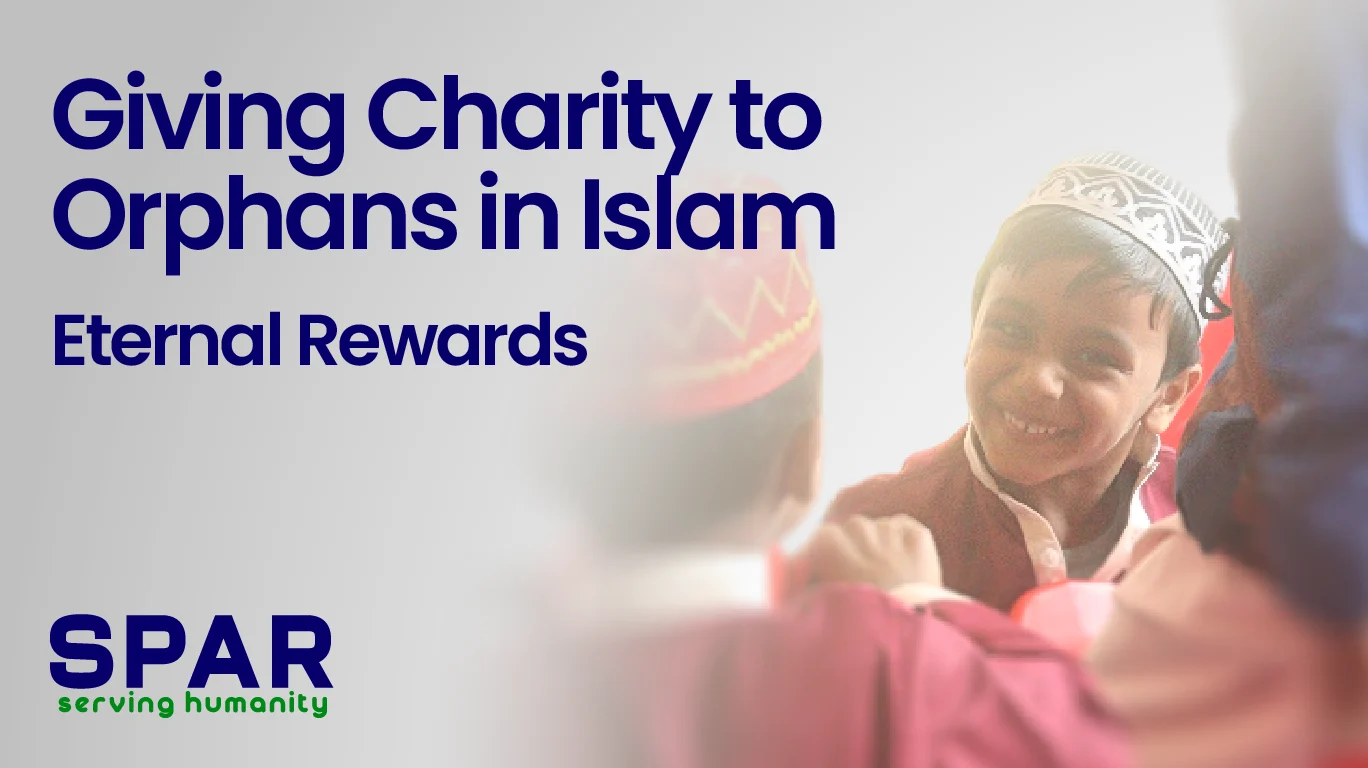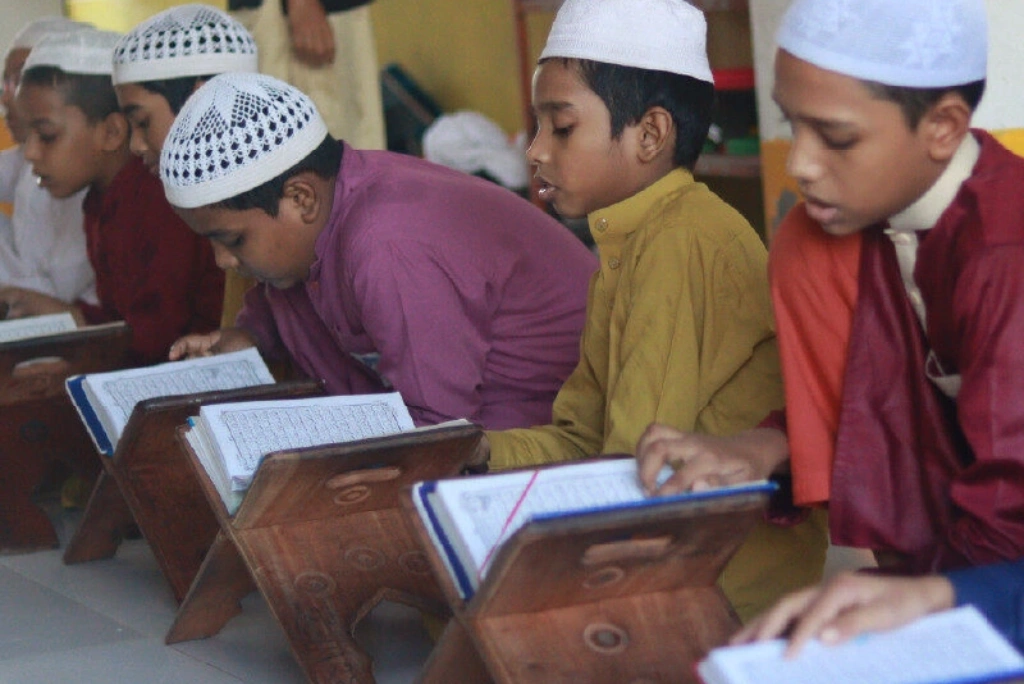Giving Charity to Orphans in Islam: Eternal Rewards
Charity in Islam, in the form of helping orphans, is not just charity. This is a responsibility that Allah imposes upon the Muslim Ummah. The Quran, as well as the Hadith, emphasize this obligation countless times and provide evidence that supporting orphans is the road to mercy, blessings, and paradise. ِIn Islam, an orphan is a child who has lost his father. Alone, these children suffer from hunger, squalor, and solitude. It is Islam that defends them by making the believers accountable.
When you give sadaqah maal to orphans in Islam, you are not just giving money. You’re offering safety, love, and hope. You are protecting little ones from despair and making possible opportunities for education, health, and a hopeful future. Meanwhile, you are receiving spiritual rewards and cleansing your wealth. This article will clarify what it entails, the rewards, and how you giving Charity to Orphans in Islam, as well as practical steps you can take today.
Who’s an orphan in Islam?
In Islamic terminology, an orphan is a child who has lost his or her father. The father is regarded as the natural custodian and also the breadwinner. So the child, once the father is gone, cannot be on his own anymore. The orphans are the most disadvantaged among the juveniles. They are left to poverty, neglect, or exploitation without community support.

The Quran on Orphans
The Quran treats orphans with kindness and justice. Allah commands Muslims to treat orphans with justice and forbids taking advantage of their vulnerability.
- “And they ask you about orphans. Say: “Better for them would be what is right.” (Quran 2:220)
- “And do not go near the property of an orphan, except for what is beneficial, until he reaches maturity.” (Quran 6:152)
- Verily, those who unjustly eat up the property of orphans, they eat up only a fire into their bellies, and they will be burned in the Blaze. (Quran 4:10)
These verses prove that taking care of orphans is mandatory. It is a responsibility that comes with consequences. Protecting them brings reward. Oppressing them brings severe punishment.
The Prophet Muhammad’s Example
The Messenger of Allah (peace and blessings be upon him) was born an orphan. His father died before his birth, and his mother when he was still very young. Experiencing childhood without his parents gave him a profound insight into an orphan’s pain. These experiences informed his compassion for children and his exhortation to Muslims to protect them.
The person who looks after an orphan and provides for him will be in paradise like this,” putting his index and middle fingers together (Bukhari).
This hadith illustrates the excellence of the maintenance of orphans. As we know, to be near the Prophet in Jannah is one of the most excellent gifts that any Muslim could wish for.

Why Giving Charity to Orphans in Islam Matters
When you donate to orphans in Islam, your contributions impact their lives in ways that go beyond just financial support.
- You have saved a child from starvation.
- School and education are what you provide.
- You are offering health care and medicine.
- You provide the child with love and nurture.
And giving to these causes benefits the giver as well. It diminishes wealth, removes greed, and closes the heart to mercy. Allah grants the giver peace, protection, and reward x 10.
Types of Charity for Orphans
Zakat
Zakat is an obligatory charity. It may be accepted by poor orphans. The donation of zakat ensures that they make ends meet for food, clothes, and a home.
Sadaqah
Sadaqah is a voluntary charity. It may be given at any time in any quantity. It can encompass school supplies, medical care, or a daily meal for the orphan.
Sadaqah Jariyah
Sadaqah jariyah is the charity that will continue. When you fund education, make long-term investments, build an orphanage, or engage in other forms of legacy, the rewards continue even after your death.
The Social Benefits of Supporting Orphans
Assisting orphans produces not a one-life change. It changes society. When orphans receive proper care:
- They’re raised in respect rather than poverty.
- They are doing well in their neighborhoods.
- They end the intergenerational cycle of hardship.
Philanthropy for orphans creates stronger families, safer communities, and healthier societies.
Spiritual Rewards of Helping Orphans
Islam ties the care of orphans explicitly to rewards in the hereafter. The Prophet (p) guaranteed that he who sponsors an orphan will enter paradise. Each charity sent, each meal offered, and each school fee paid is listed as sadaqah. It cleanses the donor’s wealth and soul.
It also serves to soften the heart that cares for orphans. It deepens the sense of gratitude believers feel. It distances arrogance and creates nearness to Allah.
Common Misunderstandings
- “Orphan care is only financial.” Wrong. But the instrumental advice and emotional support are equal forces.
- “Only rich people can afford to sponsor orphans.” False. Regular small donations also help a lot.
- “Helping once is enough.” Not true. The orphans are never abandoned with consistent care.
Modern Ways to Give Charity to Orphans
Orphan sponsorship programs: monthly donations to pay for food, education, and health care.
- Educational support: school fees, uniforms, and books.
- Medical Projects—Funding health care or insuring everyone.
- Shelter and Housing: Phillips House and Mission supporters—building safe homes for orphans.
- Vocational Training—Teach older orphans a trade/profession for sustenance on their own.
Today’s Islamic charities, such as SPAR Project, allow donors to easily get in touch with orphans and witness the fruits of their generosity.
The Lasting Rewards of Orphan Care
Supporting orphans creates sadaqah jariyah. Imagine sponsoring a child’s education. That baby grows into an adult, gets a job, and raises a family. Generations echo your first donation.
The Prophet (PBUH) described it that, you know, when a human being passes away, then his amal comes to an end. However, he said there are 3 exceptions. One exception is a sadaqah jaareyah. Which means a person gave some money to something that would bring ongoing sadaqah. Number two is knowledge, which was beneficial. The third exception is if a person has children who pray for him. In other words, helping orphans could mean any or all of the three.
Personal Growth Through Giving
This experience is also personally meaningful for donors. It is a class in patience, gratitude, and humility. It serves to remind us of the fact that wealth is an amanah ( trust from Allah), and not a possession. It promotes families teaching children how to be generous and empathetic.
The Role of the Muslim Community
Taking care of the orphans is not the responsibility of one person. It is also a collective duty. They must create systems to care for orphans, to guarantee fair inheritance practices, and to protect them from exploitation. Charitable groups, mosques, and families all play a part.
Final Thought
Providing charity to orphans in Islam is one of the most direct ways towards attaining Allah’s mercy and companionship with the Prophet in Paradise. These children must never go without food, shelter, education, and love. Every believer is capable of providing this.
Your help can transform despair into hope. When you sponsor an orphan living in Kunya, Kenya, through the SPAR Project, you are guaranteeing that a vulnerable child will receive care, protection, and a bright future. At the same time, you get infinite rewards for yourself. This is an opportunity for our generation to be recognized for not leaving behind a legacy of indifference towards empathy.
How does Islam specifically define an orphan?
An orphan is a child who has lost one or both parents.
Why is supporting orphans stressed in Islam?
Islam protects the weak. Orphans are inherently defenseless, and therefore, we should protect them.
Can I distribute Zakat to an orphan?
Yes. If they are poor, then Zakat should be paid to them by the brothers and sisters in faith.
How much are you spending on orphan support?
The Prophet Muhammad (PBUH) also pledged rewards for those who feed an orphan beside him in paradise.
Is a small charity valuable?
Yes. Even small contributions, when done consistently, can have meaning.
What is sadaqah jariyah for orphans?
It is a sort of continuous charity, which includes projects like schools, water wells, and housing.
How can I help orphans today?
There’s everything from monthly sponsorship programs for orphans to one-off donations towards education and health services, as well as getting involved in projects such as those run by SPAR Project.
Is it possible that looking after orphans means only money?
No. It’s also about the love, direction, and emotional support that is unconditional.
But what if I don’t have much to offer?
Consistency matters more than size. Charity, even in ever so small a degree, is rewarding and relieving.




 Secure
donation
Secure
donation